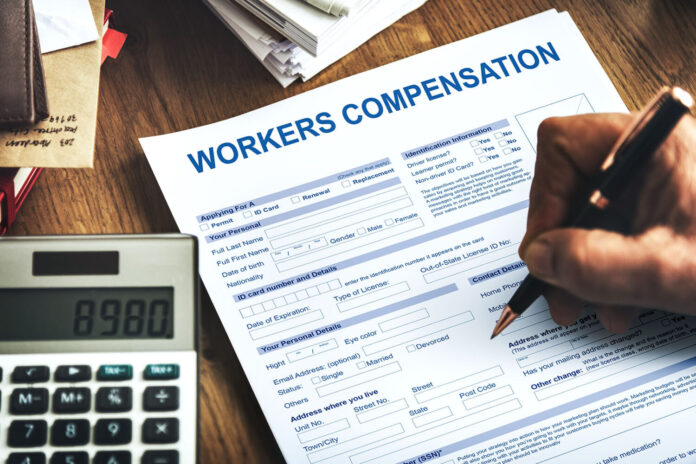If you are an employee in New York and have suffered a work-related injury, you may wonder if your medical costs and wage loss will be covered. Fortunately, New York State provides workers’ compensation benefits to help workers who are injured or become sick due to their job. Under New York law, employers must carry workers’ compensation insurance to protect employees if they suffer from a work-related injury or illness.
This compensation is meant to cover medical expenses, lost wages, and potential disabilities sustained by the employee. In this article, we will provide you with an informative guide to help you understand the workers’ compensation system in New York and determine if your work-related injury is covered.

What Is Workers Compensation?
Workers’ compensation is an insurance policy that provides essential benefits for workers who become injured or ill while performing their job duties. The primary purpose of this insurance is to support a worker unable to work due to their injury or illness and help them obtain the medical treatment necessary for recovery.
Employers are responsible for purchasing this insurance for their employees without requiring them to contribute financially towards its cost. The insurance carrier then pays weekly cash benefits and covers medical care for the injured or ill employee. In situations where Board intervention is needed, the state agency processes the claims and determines the amount of cash benefits and medical expenses that the insurer should reimburse.
Workers’ compensation is crucial in protecting employees and ensuring they receive the necessary support to get back on their feet after a work-related injury or illness.

What Is Covered Under Workers’ Compensation?
It’s essential to understand that while workers’ compensation insurance provides substantial coverage for work-related injuries, accidents, and illnesses, it has limits. There are scenarios where workers’ compensation may not apply, or an employee may not qualify for its benefits.
For instance, if the injury results from the worker’s intentional disobedience or intoxication while on duty, they may not receive workers’ compensation benefits. Similarly, accidents while commuting to and from work or during lunch breaks may not be covered. Also, employees who engage in workplace misconduct that results in injuries may not be eligible for workers’ compensation.
There are several key factors to consider to ensure that you are eligible for workers’ compensation insurance in the event of an accident, illness, or injury. They are as follows:
- You must be classified as an employee under the law, which typically includes anyone who receives a regular salary or wage from an employer.
- The illness, disability, or injury must be directly related to the work that you were hired to perform. This means that if you were injured while completing tasks outside your official job duties, such as running a personal errand during work hours, you might not be covered under workers’ compensation insurance.
- The accident or incident must have occurred while you were actively performing duties within the scope of your employment. This can include anything from operating heavy machinery on a construction site to typing a report at your desk.
- You must notify your employer in writing of the event that caused your illness or injury within 30 days of it occurring. Failing to provide timely notice can result in your workers’ compensation claim being denied.
- The treating physician’s report needs to specifically state that your illness or injury was caused by a job-related accident or incident. With this documentation, your claim may be allowed.
Remember, workers’ compensation insurance is in place to protect employees who become ill or injured due to their job duties. If you’re still confused, you can find a construction accident lawyer in NYC to seek professional advice and to help clarify what benefits you’re entitled to in case of an unfortunate event at work.

Benefits of Workers’ Compensation
If you are unfortunate enough to experience an injury while on the job, workers’ comp benefits may provide you with the necessary assistance if your injuries qualify. This assistance typically comes in the form of two common benefits.
Cash Benefits
Workers’ compensation benefits are designed to help employees who have suffered work-related illnesses or injuries. These benefits provide cash to supplement employees’ income when they cannot work due to their injury. The amount of cash benefits you can receive is based on your earnings before the accident. Specifically, you can receive a weekly cash benefit equal to two-thirds of your average weekly wage.
However, this weekly benefit can be, at most, the maximum benefit allowed by law. It is important to note that the maximum cash benefits are adjusted each year on July 1 to reflect the most current economic realities.
If you are an injured employee, the amount of cash benefits you can receive will depend on your ability to return to work. For instance, you can receive up to the maximum allowed cash benefit if you cannot return to work because of your injury. On the other hand, if you can work, you may receive partial cash benefits that will increase what you earn up to two-thirds of the total disability.

Medical Benefits
Medical benefits are something else that is covered by workers’ compensation. Firstly, your physician or health care provider must be approved by the Workers’ Compensation Board unless it is an emergency situation. This ensures that you receive high-quality care that is tailored to your specific work-related illness or injury.
Secondly, if your workers’ compensation carrier or employer approves your claim, you will not be charged for any treatment received for your work-related condition. This means you can focus solely on your recovery without worrying about financial burdens.
Furthermore, you may also be eligible for mileage reimbursement to and from your doctor’s appointments, so keeping track of your travels is important. Remember, taking care of your health should always be a top priority, and knowing your rights and options under workers’ compensation can help ease the stress and burden of a work-related injury or illness.
Move Forward With Your Workers’ Compensation Claim, Today!
Pursuing your workers’ compensation claim is essential to protect your rights and ensure you receive the benefits and compensation you deserve for your workplace injuries. With the guidance of an experienced workers’ compensation attorney, you can navigate the complex process of filing a claim and be more likely to secure a favorable outcome.





![Calgary’s Hottest Neighborhoods for Luxury Homebuyers [2024]](https://thewashingtonote.com/wp-content/uploads/2024/04/Calgary-324x160.png)



